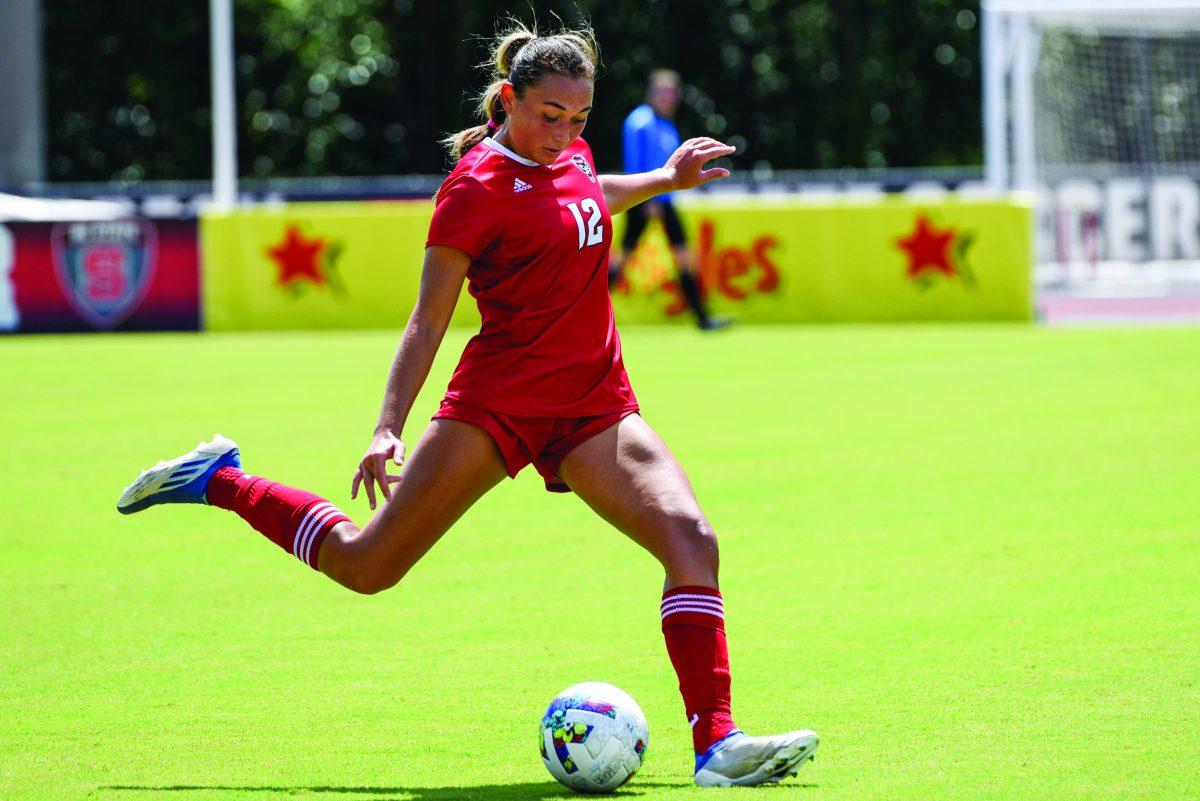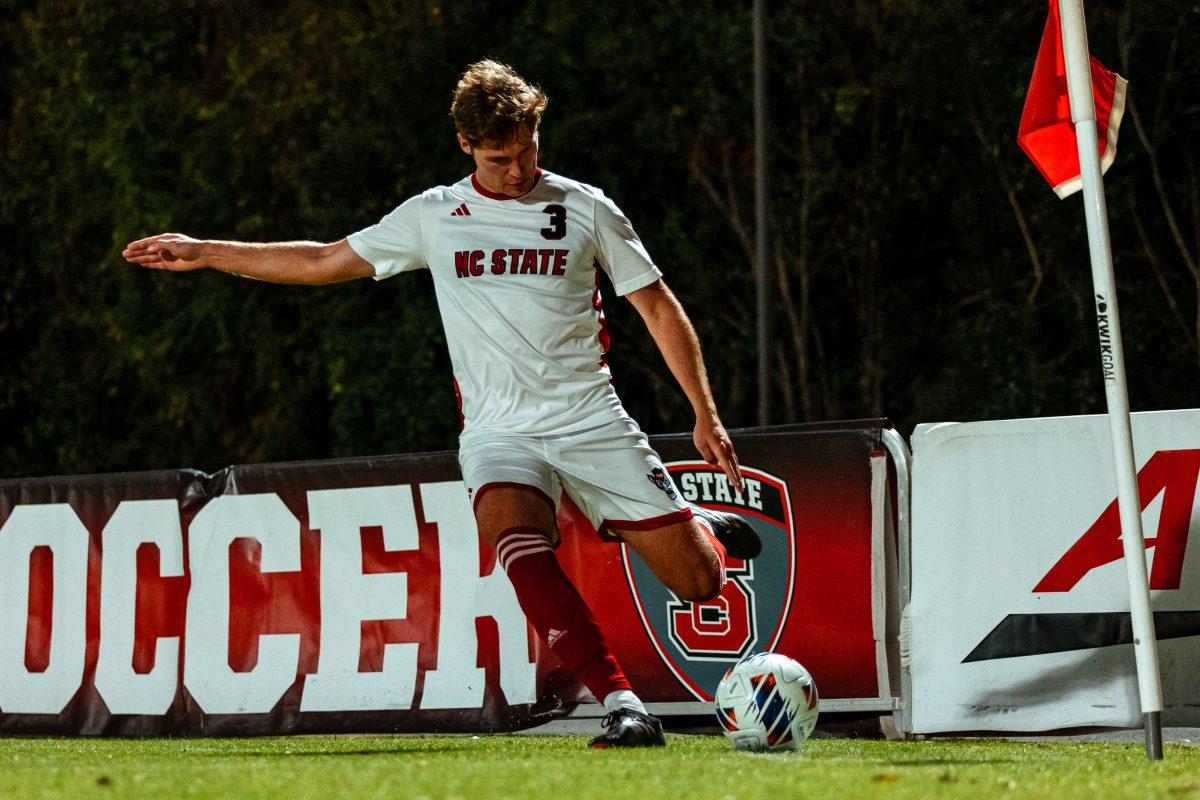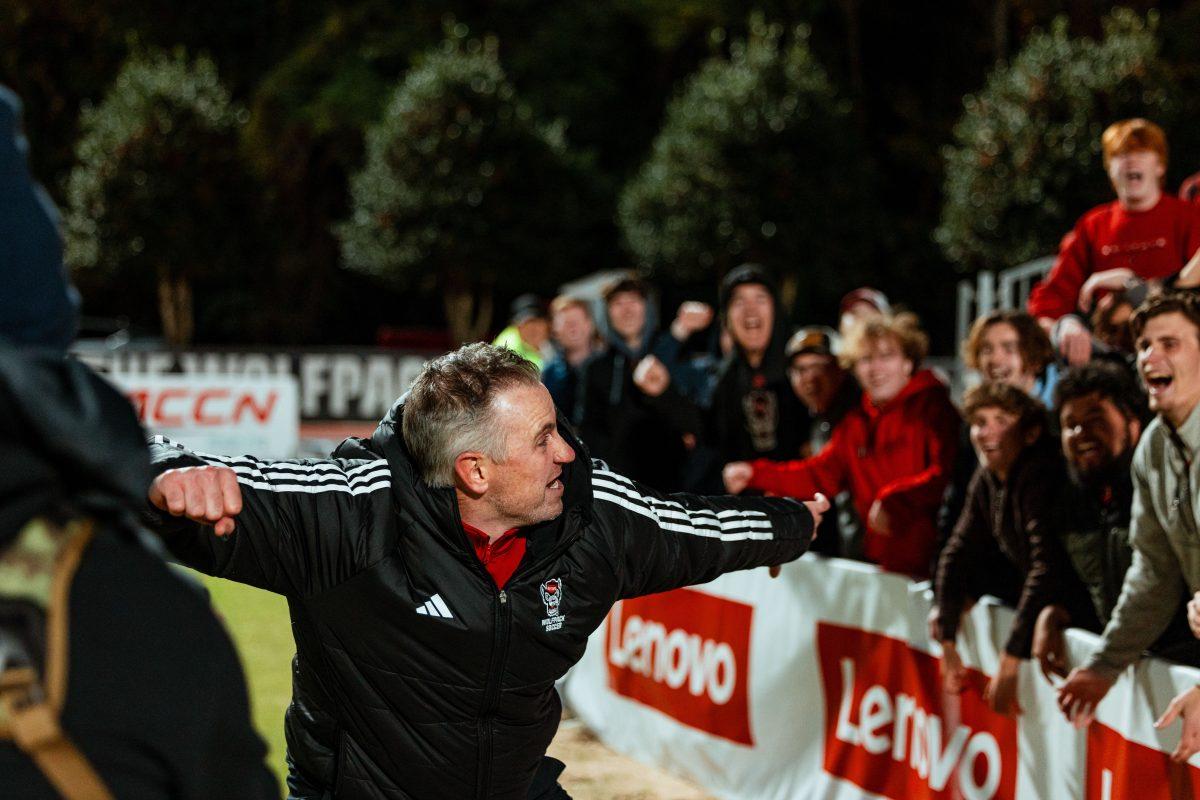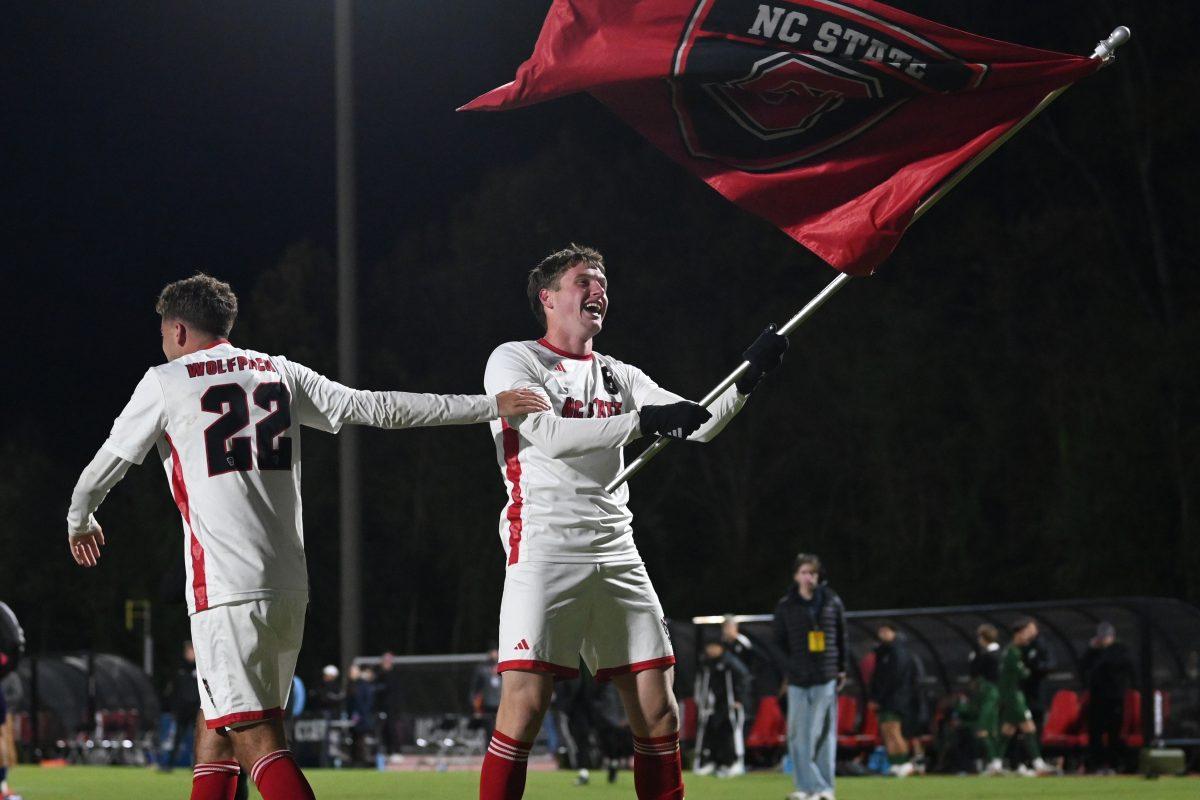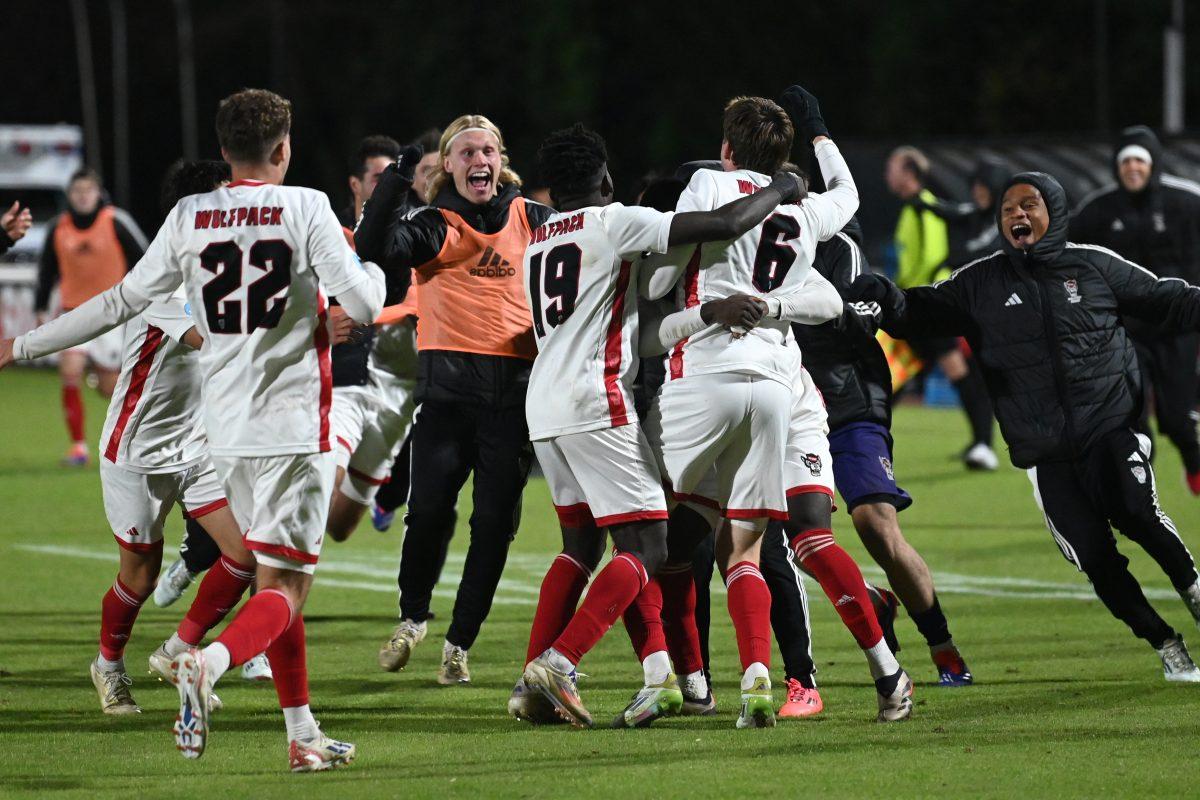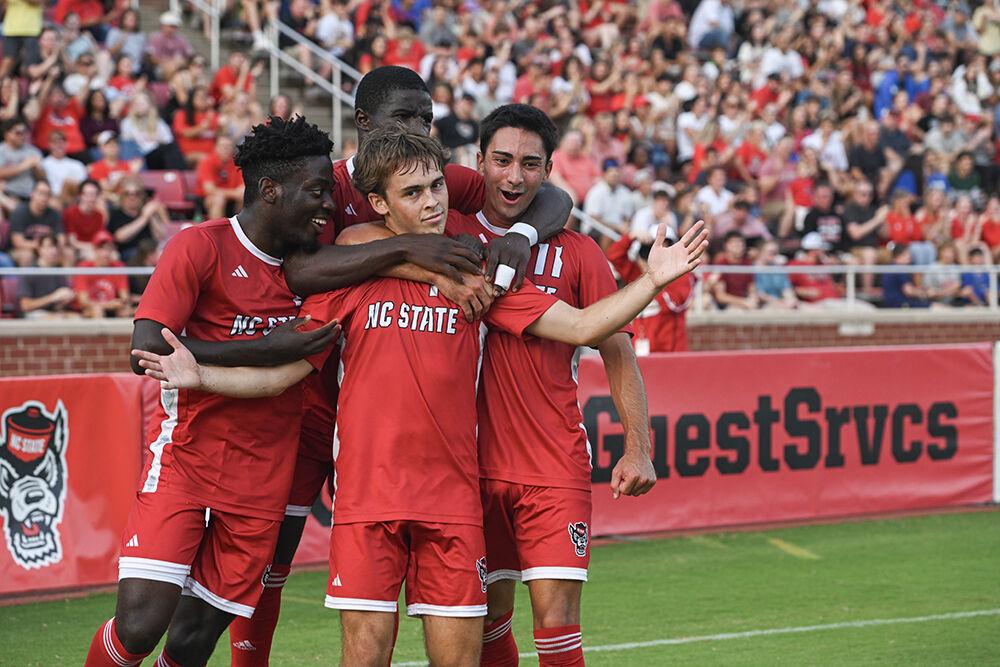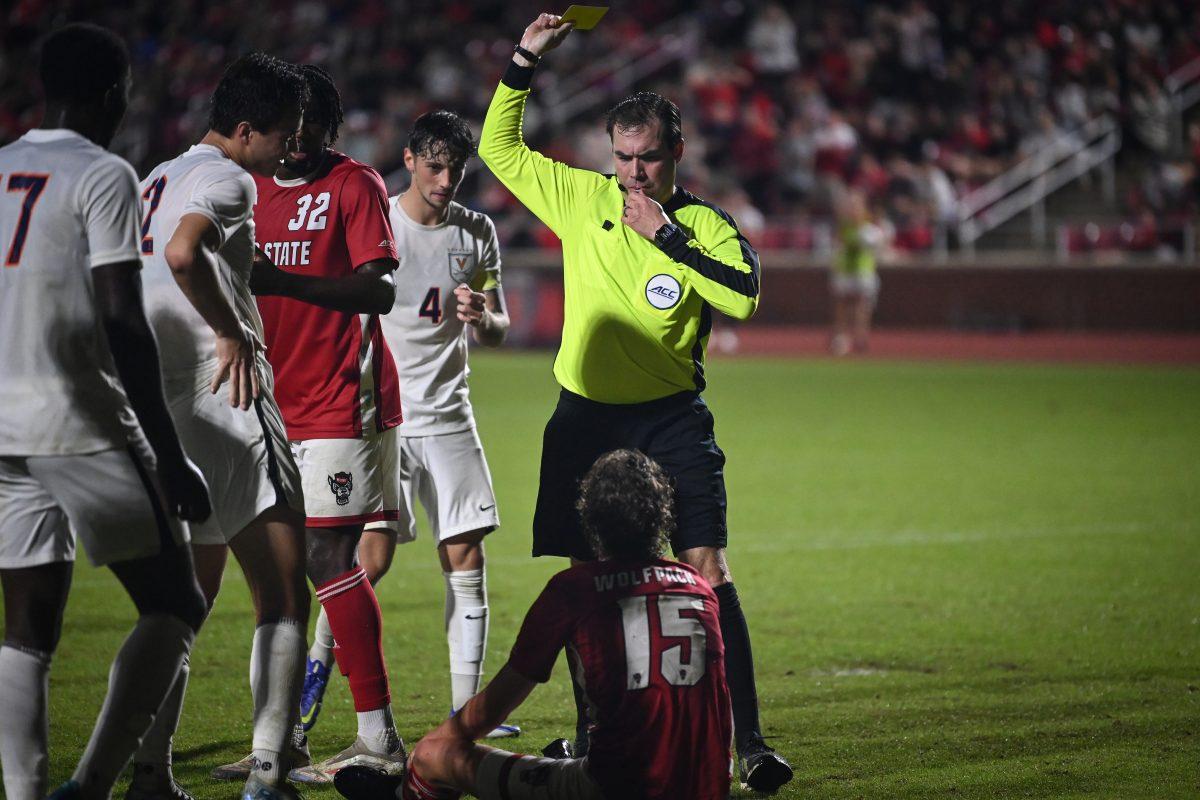Last summer, Jaiden Thomas was eagerly preparing for her fourth and final season with NC State women’s soccer. But in a routine drill just days into the preseason, Thomas knew exactly what happened the second she hit the ground.
Before her season even began, it ended in heartbreak.
Thomas, a long-time veteran midfielder for the Wolfpack, described her injury as an “out of body experience,” one that she knew the result of the moment it happened. After an immediate and apprehensive flurry of appointments, hospital visits and tests, Thomas’ status was confirmed.
Thomas’ ACL and meniscus were torn. Her season was over.
“I was so heartbroken,” Thomas said. “I remember when I was getting treatment before surgeries. I had a towel over my head in the training room because I was just sobbing all the time, and I didn’t want to make eye contact with any teammates or friends or anybody in the training room that was there. I was so sad to not be able to play.”
The initial shock of her injury was devastating to the then-senior, now-graduate, midfielder. While the physical pain from her ACL and meniscus tears was great, Thomas went through heartbreak after losing the game she loved.
Head coach Tim Santoro has seen debilitating injuries happen time and again throughout his coaching tenure. While Thomas was committed to coming back to NC State for another season shortly after her surgery, her experience was no different from others who suddenly have their lifelong purpose stripped away from them.
“A lot of times in those first couple months, they feel like there’s no light at the end of the tunnel,” Santoro said. “They do not see how they’re going to play soccer again. And we know, over time, they’ll be back to 100% but those kids, they just feel like it’s never going to happen again because it’s so painful, and you’re just so far away from what you were before the injury.”
The mental battle Thomas waged during rehabilitation was tightly intertwined with the physical one, and more often than not, the former was harder to fight.
“You’re relearning how to walk,” Thomas said. “You’re relearning how to run, and it takes a while, and because you don’t have a lot of muscle there, there’s so many aches and pains when you’re coming back. So the entire recovery process, as hard as it is physically, it’s so hard mentally because you’re trying to get yourself to push through pain.”
As she retaught herself how to walk, Thomas was restricted to a spot on the sideline and a pair of crutches for her team’s lackluster 3-9-6 2023 campaign, another factor that took a toll on her mental health.
“They’re having to watch the team play and last year — we didn’t have a good year — and that’s even more frustrating because they know they can help,” Santoro said. “And it’s just a vicious cycle of them having to go through all these different battles mentally. The physical part they get through quickly. It’s just the mental part of trying to get back.”
It’s an experience that’s not uncommon for athletes of any sport but isolating all the same.
Thomas said she did her best to stay positive at every point of her rehabilitation, part of which was celebrating the many small victories she achieved along the way. However, there were many ups and downs. Through both the good and bad days, Thomas made it a point to be her own cheerleader.
“It’s so important to just be your own biggest supporter as much as you possibly can,” Thomas said. “And it won’t be all the time, but whenever you can, just try to push through and be your biggest supporter because, at the end of the day, your body really needs you.”
Even still, it took an undertaking to overcome the anxiety and mental strain that came with a severe injury such as hers. Despite it all, Thomas was stubbornly perserverant. And when she wasn’t, those around her were.
Santoro was by Thomas’ side nearly every day during her year-long recovery process, and Caroline Fleming, the team’s athletic trainer, was there for her every step of the way. When things seemed the most bleak, it was Fleming who believed in Thomas, even if Thomas didn’t believe in herself.
“There were definitely moments where I was like, ‘I don’t think that I can come back from this, and I don’t think that I can be the player that I was again,’” Thomas said. “The person that probably helped me the most with that was Caroline, my trainer, because she was like, ‘Jaiden, I know that you don’t believe in yourself right now, but I believe in you, and I’m gonna be there for you when you don’t believe in yourself.’”
Critical to Thomas’ recovery, and the recovery of others just like her, was her support system, of which Fleming was the cornerstone.
Thomas said there were many times when she felt discouraged and unmotivated to take part in her daily physical therapy sessions. But Fleming was always there for her as a friend first and a trainer second.
Working hand-in-hand with Fleming’s physical therapy was the NC State Athletics’ sports psychology department. As another fundamental part of Thomas’ recovery support system, the midfielder’s sports psychologist helped her work through anxiety and the insecurities that she had when she finally started training again in the spring of 2024.
At NC State, athletes who suffer long-term injuries like Thomas receive instant referrals to counselors and sports psychologists because of the toll these injuries take on athletes’ mental health. In addition to therapy sessions, Thomas found solutions to relieve anxiety, one of which was a deceptively simple addition to her wrist.
“As simple as it sounds, I wear a hair tie now at practice so that if I’m ever feeling anxious, or feel an ache or a pain here, I just kind of remind myself to just think about something else, feel something else, feel a different sensation,” Thomas said. “So I’ll just kind of pull on my wrist band lightly to feel that sensation.”
However, when all else failed, Thomas leaned on her faith to relieve her anxieties. As the backbone of her recovery, prayer for Thomas was essential to making it back on the pitch.
“I prayed a bunch,” Thomas said. “I prayed a lot before I made the decision to come back. I prayed before so many of my rehab sessions just asking for strength to get through it, asking for his hand and to help me, because it’s such a difficult time. … My faith was so huge in this, and I truly don’t think I would have gone through it if I hadn’t stayed true to my faith.”
A loving set of family and friends rounded out Thomas’ support structure. With it, she made her way back to practice in the spring. But even that didn’t come without its own new set of challenges.
Fleming said taking your first steps back out on the field is sometimes the toughest part of the rehabilitation process. For Thomas, it was intimidating to go out and play again, especially because her ACL tear was a non-contact injury.
“It’s not the same and it’s restricted and you also have fear,” Fleming said. “She’s afraid, but she doesn’t want to be afraid, and she wants to be doing everything, but we’re not ready to do everything. So you get to a point where you’ve been so excited for this moment and it’s not living up to it, and then it has its own set of challenges — mentally, physically.”
Nevertheless, Thomas persisted. She reflected on those days she spent sobbing on the training table, thankful for her willingness to accept and internalize all the negative emotions as a key part in her journey of physically, emotionally and mentally healing from her injury.
“For as much as I said to try to remain positive and confident, I think early on, when you get injured like this, allow yourself to feel all of the emotions, all of the negative emotions,” Thomas said. “I think that helped me a lot because for the first few months I really allowed myself to feel those negative emotions so I could push through it quicker.”
Fleming and Thomas continuously set short-term goals that built up to the midfielder’s ultimate, long-term goal of playing again. That long-distance objective always seemed unattainable for many, including Thomas. Even after experiencing a setback just a month before the start of the 2024 season, that seemingly unreachable goal was suddenly seconds away.
As Thomas stepped back onto the field for the first time, she had yet another out-of-body experience. Excitement, joy and disbelief overcame her as she subbed into the Pack’s season opener in Raleigh.
“I was so excited,” Thomas said. “I don’t even fully remember those first few minutes. Running out there, I was like, ‘I don’t even think this feels real. This doesn’t even feel real.’ I’m sure the first time I touched the ball, I think I turned it over to the other team, because I was just so anxious in the best way possible. Like, ‘What do I even do with this ball now that I have it?’”
Thomas repeatedly recollected the importance of perseverance throughout her journey — emphasizing that when you feel heartbreak, or that it’s all out of reach, to simply, stubbornly keep pushing forward.
“It does get better,” Thomas said. “As much as there’s going to be times where it feels so dark and it feels like it’s not going to get better, you’re going to get better. Your knee is not going to be the same? It will. And you just have to make it through each day and just keep pushing.”


